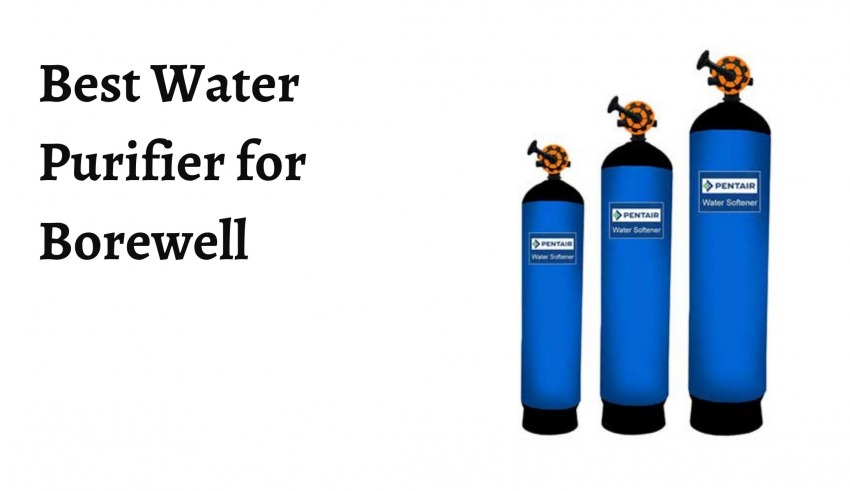
Given the fact that India is a developing country, most families rely on well water or borewell for their water supply needs. Even in big cities such as Pune, Bangalore, or Mumbai, residents rely on borewell water for their daily consumption. Generally, this type of water is safe to consume, but the story might not be valid for most locations.
The borewell water could have hard water with high contamination from viruses, bacteria, or heavy metals such as fluoride, arsenic, lead, and more. Simply put, borewell water is hard due to the magnesium and calcium content present within and hence the sour taste. But, safety with borewell water cannot be guaranteed and hence requires the use of the best water purifier for your home. Depending on the contamination level, your need for a water purifier could vary.
Determine the TDS Value of Borewell Water
First things first, before selecting a water purifier for your home, make sure you check out its TDS level. In order to calculate the same, opt for a TDS meter. On average, if the water’s TDS value reaches the limit of 200 PPM or higher, it can be considered as hard water. However, there are other factors as well that make up for the hardness of the water you drink from the borewell.
Another way to can test your drinking water acquired from the borewell is by getting in touch with the local government laboratory. Every state in India has a testing lab put in place by the Ministry of Drinking Water & Sanitation. Here is where you can get the water tested and determine the TDS level, contamination, or hardness.
Borewell Water: Type of Purifier You Must Choose
In the process of safe health, your next move is to select a purifier that can help make your water tasty and safe. Here are some tips to help you select the right option depending on the water in your area. In case your borewell water shows the presence of heavy metals such as arsenic, the key is to make use of a water purifier with RO+UV features. This combination of ultraviolet light and reverse osmosis technology will help get rid of the contaminants and hardness with ease.
For borewell water that doesn’t house any particular heavy metal but has a TDS value less than 300PPM with a bad or sour taste, a simple water purifier with RO feature might do you good. You can make use of an RO system fitted under the sink for ease of use. Alternatively, if your borewell water has a TDS level ranging between 200 and 300 PPM without any major contaminants, you could get fresh and healthy water with a gravity-based purifier.
These machines can help enhance the water taste while purifying the same to the best extent. In a case where budget isn’t a concern for you, the safest bet would surely be a UV+RO water purifier to help keep the borewell water healthy.
In case you need a purifier that gets rid of viruses, bacteria, and other disease-causing microbes, the key is to opt for a purifier with UV+UF technology. These machines are ideal for water with TDS levels ranging between 1 and 200PPM.
Avoid Water Wastage with the Ideal Purifier
With depleting levels of drinkable water, it is important to save each drop of water that you can. For some homes, RO purifiers are mandatory given the high TDS level or strong odor coming in from the brackish water. However, old-age purifiers could cause more water wastage as compared to the cleanup of contaminants.
The key is to opt for modern-day RO purifiers that ensure minimal or zero water wastage. Instead of being thrown off, the remaining unclean water can be used for mopping floors, cleaning utensils, or other daily tasks.
Purifiers can further be counted down depending on other factors:
- Storage Material:
New-age water purifiers also have stainless steel-based water storage options that can add to the cost factor. However, a good-quality plastic storage tank could also be ideal and would serve as a budget-friendly choice.
- Electric or Non-Electric:
With the water purifiers, you can get cheaper and non-electric variants as well. The non-electric purifiers help remove impurities depending on what technology is being used. Some of these variants offer UF technology and carbon and sediment filtration that helps remove odor or chlorine.
Also, consider that electric purifiers can practically be useless if you live in areas that lack running water or electricity. So, the choice boils down entirely to what you need.
Check for Add-on Safety Features
When selecting the best water purifier for your borewell supply, make sure you check for evolved functionalities and features. For example, filters serve as a critical part of the water purification process. However, we often commit the mistake of using the filters beyond their expiry date & end up consuming impure water. That is why it is crucial to opt for water purifiers with filters that have a longer usage life and with replacements that are easily available in the market.
Conclusion
When using a water purifier for your daily consumption and borewell water filtration, the key is to consider its maintenance needs as well. A well-maintained filter could factor into cost-savings with a healthy water supply in the long run. So, make sure you choose wisely and select from the top-ranked options available in the market!